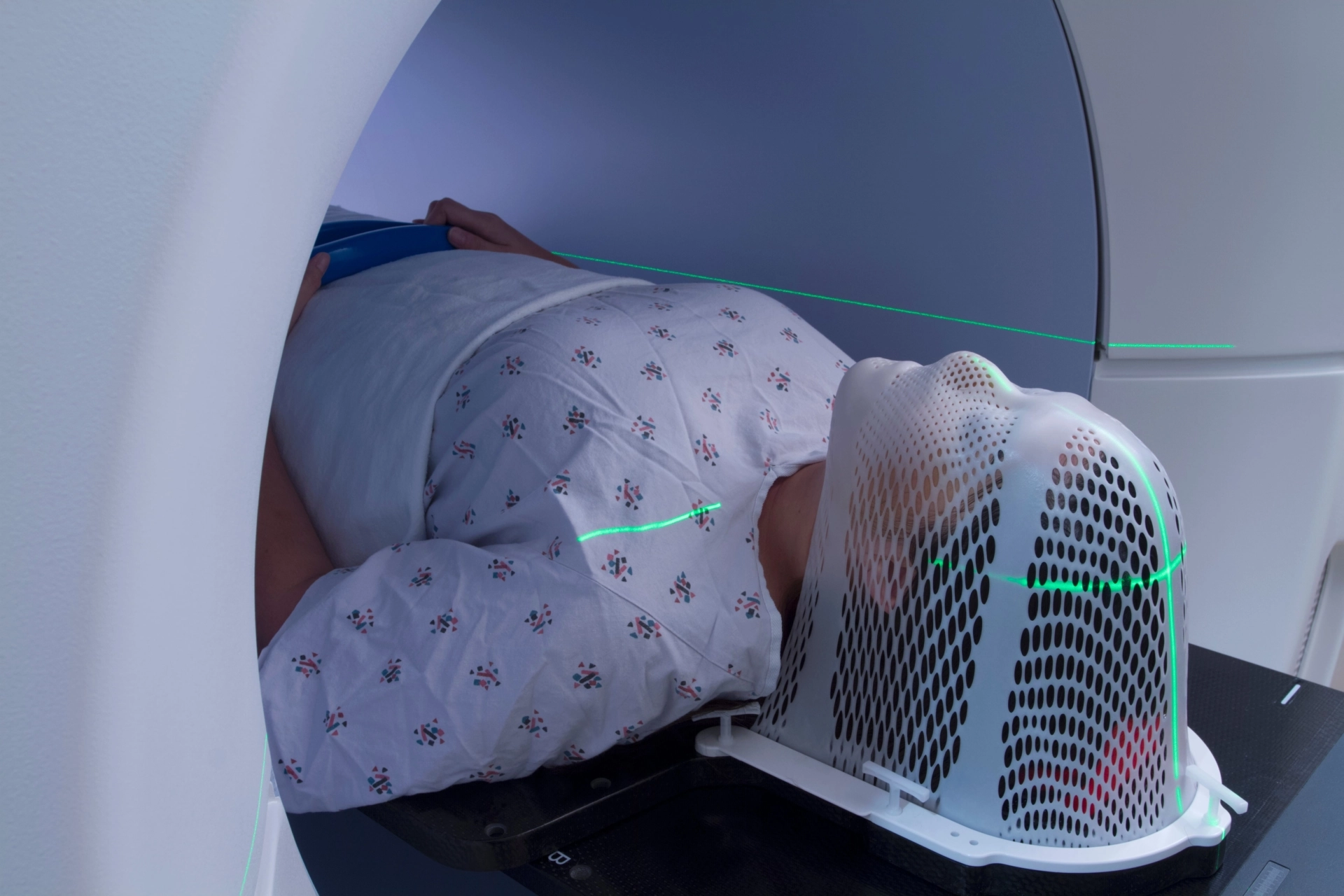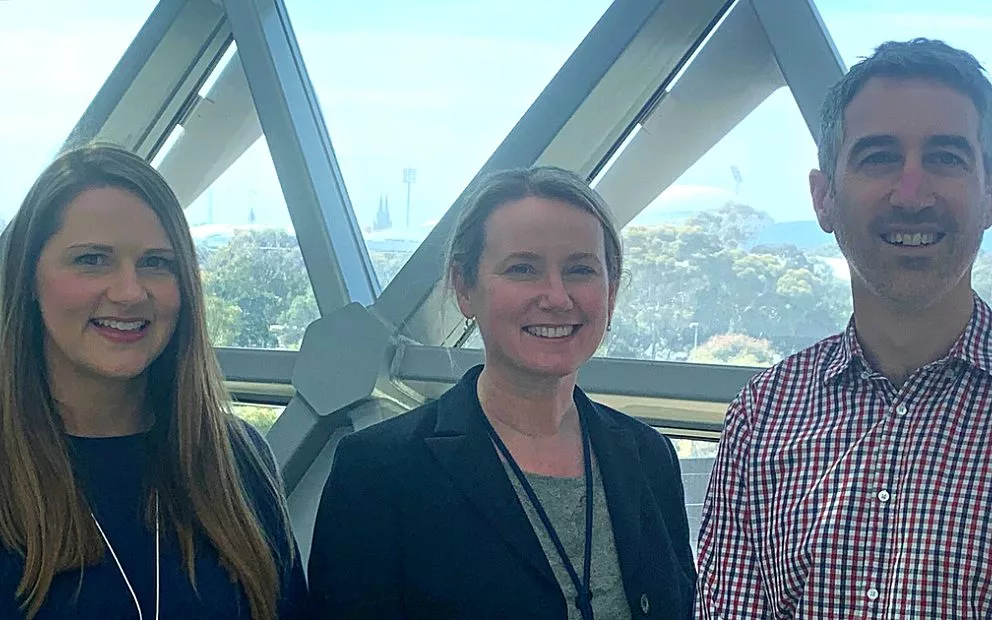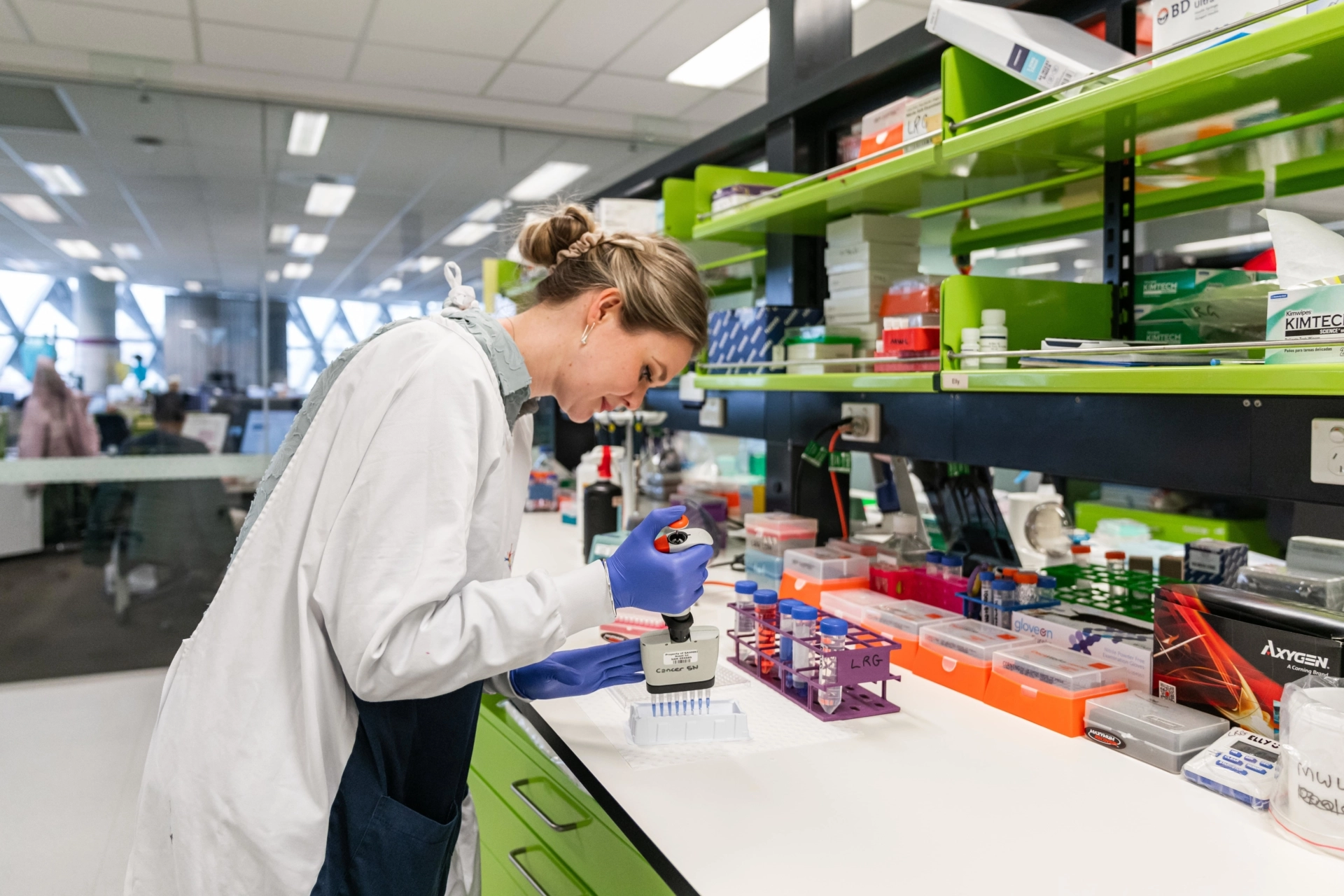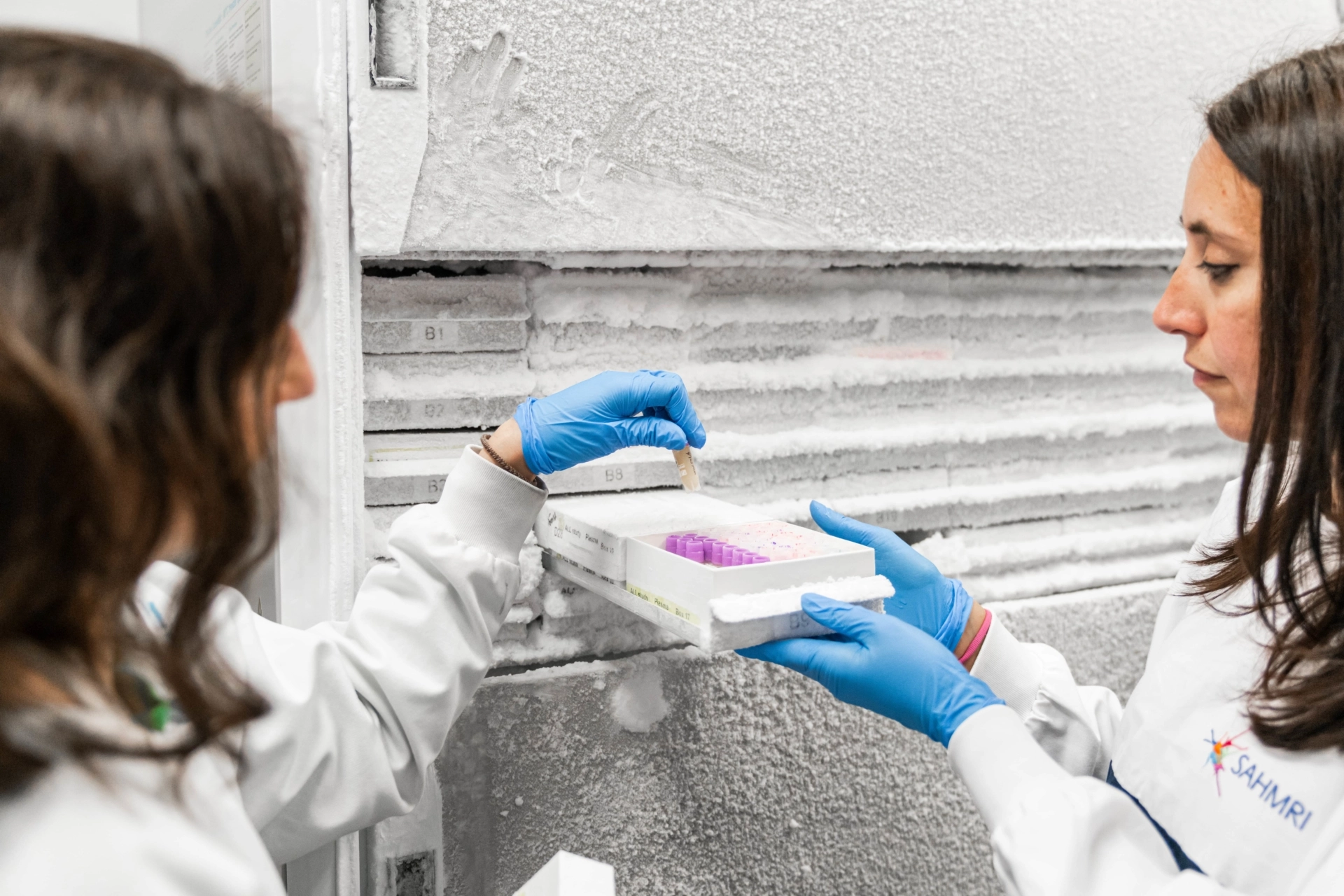SAHMRI researchers are leading an investigation to better understand how prostate cancer cells survive and reappear after drug treatment.
Dr Zeyad Nassar, is the principal investigator on the three-year project, which has received USD$1,005,845 (AUD$1,594,491) in funding from the US Department of Defense.
“Drug treatment of cancer cells usually kills most cells, but the remaining cells activate survival pathways to resist therapy,” Dr Nassar said.
“Discovering and understanding the biology of these activated pathways, and then trying to design new ways to target them, will lead to the eradication of more cancer cells and avoid disease relapse.”
Dr Nassar’s work has shown that prostate cancer cells resist therapy by activating fat metabolism. This latest project will focus on why the cells activate this process and how this allows the disease to progress, while also studying the effect of blocking this process.
Prostate cancer is the second most common cancer among men worldwide, and the most commonly diagnosed cancer in Australian men.
One in six men will be diagnosed with prostate cancer by the age of 85 and around 20,000 men are diagnosed with prostate cancer in Australia each year.
“Due to the dependence of prostate cancer cells on androgens for growth and survival, androgen deprivation therapy has remained the frontline strategy for management of advanced prostate cancer since the 1940s,” Dr Nassar said.
“Although androgen deprivation therapy is initially effective in most patients, it fails to achieve an enduring remission, with the disease reoccurring an average of 18 to 20 months after treatment.”
It can take up to 15 years for a new drug to be approved for use and Dr Nassar says there are drugs already on the market for the treatment of other conditions with the potential to make a much faster impact.
“Fatty acid oxidation inhibitors already developed for diabetes or other conditions of the heart and the liver could be readily tested clinically for prostate cancer,” he said.
Dr Nassar will also develop predictive measures to pre-empt which patients may respond optimally to these drugs, an essential tool to enhance patients’ quality of life and to determine the right treatment for each patient.”





